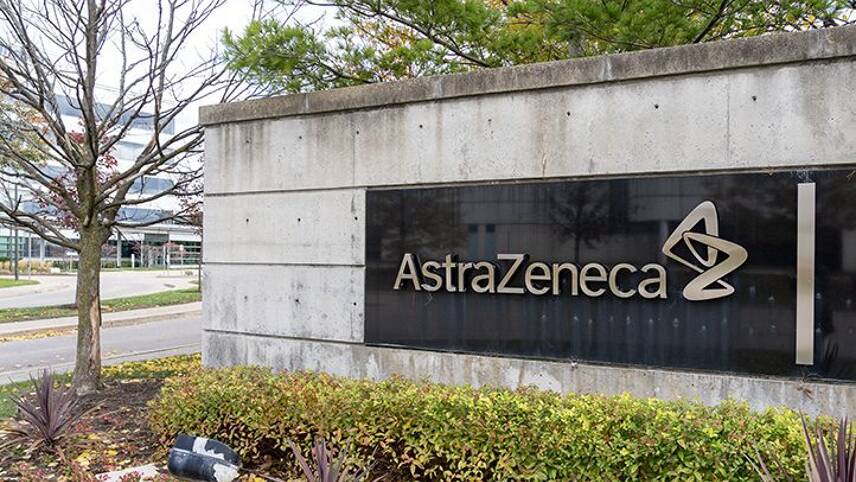Register for free and continue reading
Join our growing army of changemakers and get unlimited access to our premium content

The forestry programme is part of the company’s ambition Zero Carbon commitment
AstraZeneca UK is partnering with the government agency Forestry England and the Borders Forest Trust non-profit on a multi-year tree-planting programme.
The company is aiming to plant more than one million trees across the UK by 2025 through a £1.9m investment and builds towards AstraZeneca’s goal to plant and maintain 50 million trees globally by 2025.
“As a company that puts the health of people and our communities at the forefront of everything we do, we are committed to ensuring we do right by the planet. We are proud to work in partnership to accelerate action against climate change, promote biodiversity, and raise awareness of the value reforestation brings to society and human health,” AstraZeneca’s head of environmental protection Professor Jason Snape said.
“This reforestation initiative in the UK is an important part of our commitment to plant 50 million trees worldwide by 2025, with planting already underway in Australia, Indonesia and France.”
Certified carbon
The forestry programme is part of the company’s ambition Zero Carbon commitment to be zero carbon across its operations by the end of 2025 and carbon negative across its entire value chain by 2030.
Last month, the Science Based Targets initiative (SBTi) unveiled the world’s first standard for corporate net-zero emissions aligned to climate science.
The SBTi’s new Net-Zero Standard is the world’s first science-based certification of companies’ net-zero targets. The certification is given to businesses if their decarbonisation strategies are in alignment with the Paris Agreement’s goal of keeping planetary warming to 1.5C.
While the Standard officially launches next year, the SBTi has named the first seven firms to have their net-zero targets certified as part of a pilot scheme. AstraZeneca, CVS Health, Dentsu International, JLL, Holcim, Wipro and Ørsted have all had their targets validated.
The planting efforts on the latest partnership will initially focus on Thetford Forest, 30 miles from AstraZeneca’s Cambridge Discovery Centre and global headquarters, and in Goyt Valley, ten miles from the company’s Macclesfield manufacturing site.
Forestry England is aiming to plant 2,000 hectares of new woodland over the next five years. By the end of the year, the partnership will have planted more than 400,000 trees, with a further 900,000 to be planted over the next three years.
“Tree planting and woodland creation have a fundamental part to play in helping tackle the twin crises of climate change and biodiversity loss we are urgently facing. Resilient woodlands, well-adapted to the changing climate conditions we now expect, will help us capture carbon, improve air quality, alleviate flooding, and create beautiful places for wildlife to flourish and people to connect with the natural world,” Forestry England’s chief executive Mike Seddon said:
“The commitment of businesses like AstraZeneca is vital in enabling us to plan for the long-term, designing, planting, and caring for woodlands now which will mature and flourish decades ahead. And thanks to this partnership funding, we’re able to focus not only on creating new woodlands but also on helping the recovery of forests affected by tree disease.”
Sustainable Self-Care
In related news, the Global Self-Care Federation (GSCF) last week announced the launch of the Charter for Environmentally Sustainable Self-Care.
The Charter aims to reduce the impact of self-care products on the environment, while ensuring the quality creation of health products and services. It covers over the counter without prescription (OTC), food supplements including minerals and vitamins, and self-care medical devices.
Members including Bayer, GSK and Johnson and Johnson have pledged to reduce plastics and packaging and introduce emissions reduction targets in line with the Paris Agreement.
The GSCF’s director general Judy Stenmark said: “Voluntary and proactive action across the consumer health industry is essential to find urgent, sustainable solutions to address the sector’s environmental impact.
“That’s why I am very pleased to see the Charter come to fruition at a time when we are truly seeing a collective global movement from business to address sustainability, both through making tangible commitments and delivering on them. The Charter provides an ambitious platform for all our members globally to drive innovation in sustainability.”
Matt Mace


Please login or Register to leave a comment.